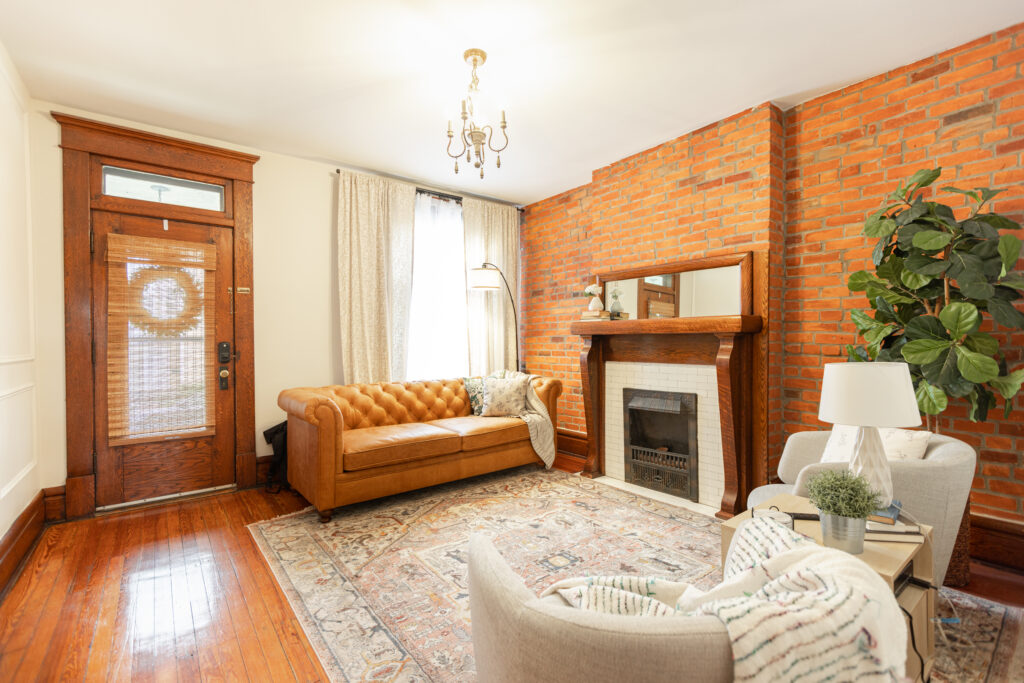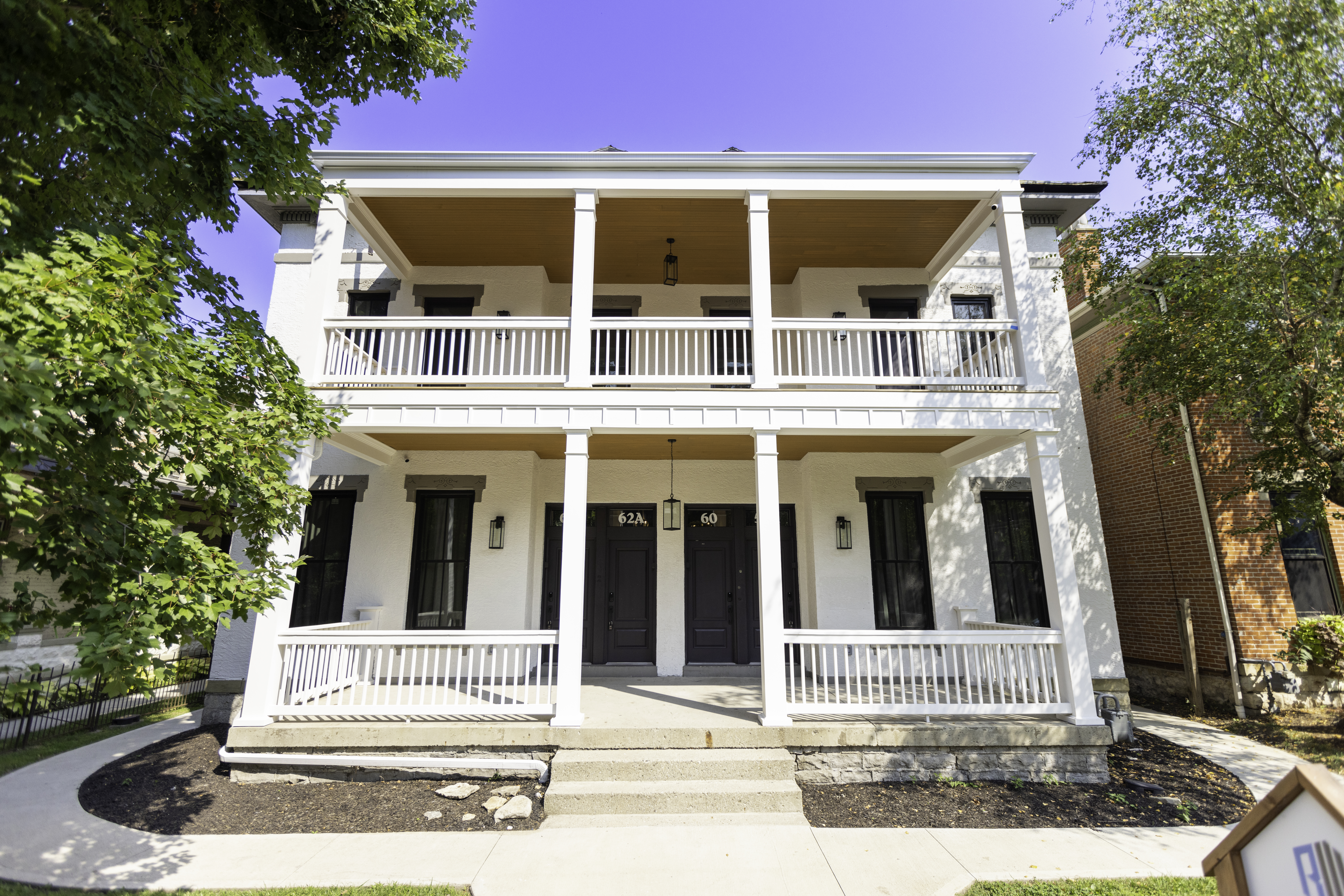
Are You Equipped to Navigate Airbnb Damage Claims? Check out our complete guide.
That sinking feeling in your stomach is real. You see the message from your cleaner, and your heart drops. Dealing with property damage can make you question why you even started hosting on the Airbnb platform.
You might be wrestling with a lot of emotions right now, and I get it. But handling an Airbnb damage claim doesn’t have to be a battle that ruins your business.
You can turn this frustrating process into a simple, transactional part of your job. It’s all about changing your mindset and having a solid plan. You’ll learn how to manage the Airbnb damage policy with confidence, protecting both your property and your peace of mind.
We’ve rounded up all of our Airbnb Hosting Must-Haves right here in our Amazon Store. Click here to grab everything you need to curate your property and start earning 5-star reviews.
- Shift Your Mindset: It’s Business, Not Personal
- What Counts as True Damage?
- Your Guide to Successful Airbnb Damage Claims
- How to Communicate With Guests About Damage
- Beyond the Claim: Prevention and Backup Plans
- Conclusion
Shift Your Mindset: It’s Business, Not Personal
Think about a time you worked as a server or saw one at a restaurant. When customers leave, their tables can be a mess. Crumbs, spilled drinks, and maybe even a broken glass are left behind.
Does the server take it personally? Rarely. It’s just part of the job they need to do to prepare for the next person. As an Airbnb host, I want you to start thinking about your vacation rental in the same way.
An Airbnb guest paid to stay at your property, and sometimes messes or accidental damage happen. Of course, intentional destruction is a different story. But most of the time, guest damage is not a personal attack against you.
When Is It Worth Pursuing a Claim?
Many new hosts get hung up on small things. A stained hand towel or a scuffed wall can feel like a huge deal. These issues are often part of the cost of doing business and fall under normal wear and tear.
You have to decide what your threshold is for action. Can you easily fix it with a backup you have on hand? If so, you should probably build these minor costs into your pricing model and let it go.
This approach frees up your mental energy. It stops you from getting angry over every little thing, which lets you focus on growing your hosting business. It creates a better environment for you, your family, and your team, preventing potential income loss from wasted time.

What Counts as True Damage?
So, when should you start the formal claim process? True guest damages are when you can’t get your Airbnb property back to its original condition on your own. It’s more than just unexpected cleaning or a quick fix.
We once had a guest remove all the crystals from a chandelier. We think they were trying not to cause damage while playing a game. But we couldn’t find all the crystals to put it back together, so the chandelier was no longer whole.
That is true damage caused by a guest. Another time, a guest got locked out of the apartment and broke a window and a door lock to get back inside. These situations require professional repairs and significant cost, which justifies filing a claim.
Your Guide to Successful Airbnb Damage Claims
When serious damage happens, you need to act fast. Speed and thoroughness are your best friends in this situation. Whether you are dealing with AirCover for Hosts or your own rental insurance, a quick and detailed response is critical.
AirCover for Hosts offers Airbnb hosts significant host damage protection. But remember, it’s not a personal insurance policy in your name. Airbnb doesn’t owe you a reimbursement, so you must present a strong, evidence-backed case for your aircover claim.
Follow these steps to give yourself the best possible chance of getting your Airbnb claim approved.
Step 1: Document Everything Immediately
The moment you or your team discover damage, the clock starts ticking. Don’t wait. You need to gather detailed evidence on the same day as checkout to meet the required time frame.
Your smartphone is your most powerful tool here. Take clear photos and videos of all the damage you document. Check that the photos are timestamped, which most phones do automatically, to prove when the damage was discovered.
Get a variety of shots to fully document damages. Take close-ups to show the specific issue, but also pull back to take wide shots. This gives context and helps Airbnb see where the damage is located by cross-referencing your listing photos from when the stay was booked.
Step 2: Collect All Necessary Paperwork
Photographic evidence is just the start of the damage claim process. You also need to document the financial impact of the damage. This strengthens your case to request compensation by showing a real, tangible loss.
Search for original receipts of the damaged items. If a guest broke a chair, providing the receipt for that chair is powerful proof. If you don’t have receipts, get quotes for repairs or replacements.
You might have to call a few local companies or private insurance companies. Ask for an estimate to fix the problem and get it in writing. This shows you’ve done your research on what it will cost to get things back to normal.
Step 3: Create Professional Invoices
What if you are the one doing the cleaning or the repair? You still need to provide an invoice for your labor. Airbnb wants to see a professional intake form or document outlining the costs involved.
You can easily create an invoice using free tools like Canva or Google Docs. Include your business name, an address, and an invoice number. Detail the services provided and reference the company’s payments terms if applicable.
Be realistic with your pricing. Charge fair market value for the work on your Airbnb place. Overinflating the cost is a quick way to get your claim denied, so research what local services would charge.
Step 4: Submit Your Request in the Resolution Center
With all your documentation ready, it’s time to submit your request damage payment. You officially have 14 days after checkout to file through Airbnb’s Resolution Center, but do not wait that long. Aim to submit your claim within 24 to 48 hours.
First, you will send the reimbursement request directly to the guest. They will have 24 hours to pay. Many times, guests who know they were at fault will pay without any fuss, especially if it was accidental damage.
If the guest refuses to pay or they don’t respond, you can then involve Airbnb and escalate the case. This is when the Airbnb support team will review your documentation. Be prepared to provide more information if Airbnb support asks for it, and respond quickly to their questions.
If you work with a cleaning team, handyman, or any third-party vendor, it’s essential to have solid agreements in place—especially when property damage occurs. Having an Independent Contractor Agreement ensures that responsibilities are clear and helps you avoid payment disputes or liability headaches down the road. Need one for your short-term rental business? Grab our customizable Independent Contractor Agreement template here to get started.
How to Communicate With Guests About Damage
Many property owners are terrified of asking an Airbnb guest to pay for damages. They fear a negative, retaliatory review that could harm their short-term rental business. This is a valid concern, but you can reduce that risk by communicating professionally.
Your approach can make all the difference. You want to be firm and factual, not emotional and accusatory. This invites collaboration instead of a fight when you have to request damage payment.
Keep the Conversation in the App
Always try to keep your communications within the Airbnb messaging platform. This creates an official record that Airbnb support can easily review if they need to get involved. A clear paper trail is an invaluable asset for any Airbnb damage claim.
If you must speak with the guest on the phone, that’s okay. But immediately after the call, send a follow-up message in the app. You can say something like, “Hi, [Guest Name]. Just to recap our phone call, you confirmed you would reimburse us for the broken window. Please confirm this in writing here.”
This simple step documents your verbal agreement. It brings the conversation back into a space that can be referenced later if needed. It also lets the responsible guest know you’re taking the matter seriously.
Be Factual, Not Emotional
How you word your request matters a lot. When you are feeling upset, it’s tempting to let your emotions pour into the message. This is completely ineffective and can make the situation worse.
The person reviewing your claim at Airbnb deals with these issues all day. They will respond better to clear facts than to an emotional outburst. Make their job easier by giving them exactly what they need.
A fact-based claim is much more effective than an emotional one.
| Ineffective (Emotional) Claim | Effective (Fact-Based) Claim |
|---|---|
| “This guest completely disrespected my property. I can’t believe they left such a mess. They should be banned from Airbnb.” | “The dining room chair was broken during the guest’s stay. Attached is a photo of the damage, the receipt for the original chair, and an invoice for the replacement.” |
The second example is direct and provides all the needed evidence for the host damage. Vent your frustrations to a friend or partner, but keep your communication with the guest and Airbnb purely professional.
Assume Good Intentions
Believe it or not, most guests don’t mean to cause damage during their Airbnb stay. Sometimes, accidents happen. Other times, the person who booked the property had no idea something was broken by one of their friends or family members.
We had a family stay once, and the place was left a total mess, including the common areas. Instead of accusing them, I approached it with curiosity. I explained there would be an extra cleaning fee and asked if she could help me understand what happened with all guests included in the party.
It turned out her college-aged kids had stayed an extra night alone and thrown a party. The mother was mortified and immediately paid the fee. Because I didn’t attack her, she still left us a glowing review.
Beyond the Claim: Prevention and Backup Plans
A solid claim process is reactive; great hosting is also proactive. Taking steps to avoid damage in the first place can save you immense time and stress. Here are some strategies for host protection.
Proactive Guest Screening
While a rare event, serious damage can often be prevented with better guest screening. Before accepting a booking, review the potential guest’s profile. Look for verifications, read reviews from other hosts, and check their communication style.
Don’t be afraid to ask polite, clarifying questions about their trip. Good guests are happy to provide details. This simple step can help you avoid problematic situations before they start.

The Role of a Security Deposit
Another layer of protection is requiring security deposits. While AirCover’s damage protection is available, a security deposit can be a simpler way to handle smaller issues. The possibility of losing a deposit can also encourage guests to be more careful.
Airbnb can manage the security deposit through their platform. You still have to request funds through the Resolution Center, but the process can sometimes feel more direct. Review the terms for security deposits on the Airbnb website to see if it’s right for your listing.
Understanding Your Insurance Coverage
It is vital to understand that AirCover for Hosts is not a replacement for your own insurance. The program has specific host damage protection terms and protection terms that may not cover every situation. Property owners should have their own policies in place for complete protection.
There are different types of protection. Airbnb’s Host Damage Protection helps cover damage to your property and belongings. Host Liability Insurance, on the other hand, is there for cases where a guest is hurt and there is a personal injury claim filed against you, covering your host liability.
There is also Experiences Liability Insurance for those who host Airbnb Experiences. Your own short-term rental insurance policy from a third-party provider is the best backup. It can fill the gaps left by Airbnb’s programs and cover things like major income loss, ensuring you’re protected no matter what happens.
Many Airbnb damage issues stem from guests improvising when they don’t have what they need. Prevent some of those messes altogether by stocking your place with our guest-favorite Forgot Something? Basket. This little basket of essentials—from razors to pain relievers—has earned hundreds of rave reviews and might just be the easiest way to cut down on accidental mishaps. Want our complete checklist and shopping link? Get it here.
Key Takeaways
Your property is your business, and protecting it is important. But getting bogged down by every minor issue will drain your energy and steal your joy. Establish clear house rules and build small replacement costs into your budget to handle minor wear and tear without stress.
When significant issues arise, a methodical approach to your Airbnb damage claims will yield the best results. A calm, factual, and professional demeanor will serve you well, even in frustrating situations. This applies whether you are handling an AirCover claim or dealing with your personal liability insurance.
Remember that your own short-term rental insurance is a crucial backup, because not all Airbnb damage claims will be approved. Focus on prevention, a solid claims process, and the 99% of wonderful guests. With this approach, you’ll build a resilient and profitable business.
Calling All Hosts: The Hosting Handbook
If you loved this post we invite you to check out our one-stop-shop solution for hosts everywhere —the Hosting Handbook! While you can download all the easy to consume, step-by-step tips we use in our own hosting business and create the ultimate “book” the Hosting Handbook is so much more than that! If you’ve consumed or content for years (or just met us!) this is the reference guide for all the amazing and tactical tips we have for running a profitable and, more importantly hospitable, short-term rental. How do we price for pets? How do we fold our towels? What sheets do we buy? How do I purchase a short-term rental? All these questions (and more!) can be answered in the Hosting Handbook! Check it out now!
Happy Hosting!



show comments
HIDE comments